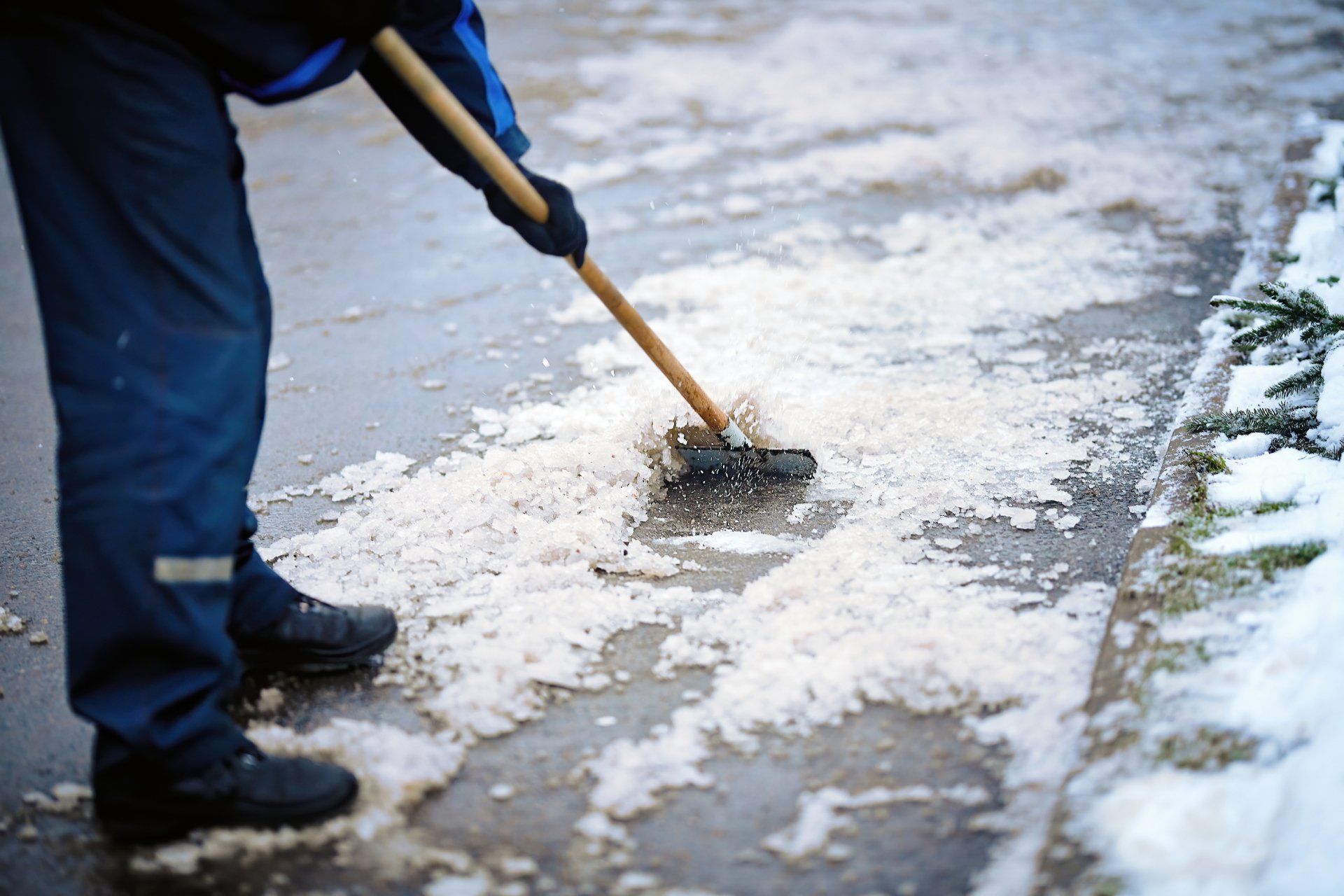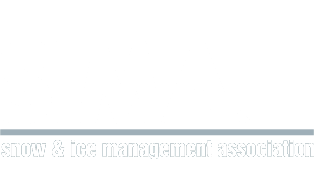Illinois Snow and Ice Removal Act: What is it?
What is the Illinois Snow and Ice Removal Act?
Snow and ice removal in Illinois is serious. That’s why there are laws in place to help spell out exactly what should or shouldn’t be done and who is or isn’t responsible, and when, if it’s not.
Unfortunately, not knowing the law isn’t an acceptable reason for not following the law in your commercial business.
So let’s go over the Illinois Snow & Ice Removal Act in detail.

Understanding the Illinois Snow & Ice Removal Act
The Illinois Snow and Ice Removal Act spells out what’s expected when it comes to snow and ice removal in Illinois. The majority of this law specifies what’s expected and who is responsible when it comes to residential properties. But that’s not what we are talking about here—which is the law concerning snow and ice removal for commercial and retail properties. There is a section in the Illinois Snow and Ice Removal Act that deals with snow and ice removal at commercial and retail properties.
Public policy under the Illinois Snow and Ice Removal Act states that Illinois businesses are not responsible for removing natural accumulations of snow and ice or any snow and ice deposits that others have trampled on. However, the policy goes on to say that a business is responsible for posting a notice or warning about potentially unsafe conditions due to inclement weather, ice, and/or snow.
One thing to keep in mind, though, is that some City Ordinances (like Springfield) require property owners to remove snow and ice after a significant weather event. So always check the city ordinances in your locale before proceeding with any type of snow and ice removal.
There are some circumstances where a business owner could be held liable if someone slips and falls on the snow or ice on their property. So let’s talk about that. But first, let’s define a natural accumulation of ice and snow.
What Is the Definition of a Natural Accumulation of Snow & Ice?
A natural accumulation of ice and snow is when the presence of snow and ice is delivered by the weather and not at the hands of an unnatural source.
When Is a Commercial Business Owner Liable?
The Illinois Snow and Ice Removal Act states that owners do not have the responsibility to remove snow or ice from their property. However, if any business does remove snow and ice from their property and someone gets hurt because of that unnatural accumulation, then the commercial business owner could be responsible for any resulting injuries.
A commercial property owner is not liable for naturally accumulating snow or ice on their properties. However, once a property owner has made any type of attempt to remove snow and/or ice from their property, it is then they become liable. The business owner could be held liable because the courts could reason that the business owner did not remove the snow and ice properly or thoroughly enough to be considered safe. The best time to address the snow is before it happens. Be prepared and read our top 10 safety snow removal tips.
What Is Considered an Unnatural Accumulation of Snow and Ice?
Any time a business owner has attempted to clear snow and ice or has moved it to another location, that in itself could present a potential problem. For example, if a business owner shovels the snow and piles it up next to their entryway, sidewalk, or any other area, then that snow melts back onto the walkway. That’s considered an unnatural accumulation of snow and ice.
How does this present a problem? If that pile of snow and/or ice melts and flows back onto the walkway, that turns it into an unnatural accumulation of snow and/or ice. So if someone slips and falls, the property owner could be held liable for any injuries. Why? Because it’s now considered an unnatural accumulation of snow and/or ice.
Another example resulting in an unnatural accumulation of snow and/or ice could be the result of negligent design of a building, sidewalk, improperly placed downspouts, gutters, or shifting surfaces. When this occurs and the snow and/or ice creates an unnatural accumulation of snow and/or ice due to an improperly placed or malfunctioning part, then the property owner could be held liable.
In other words, the Illinois Snow and Ice Removal Act doesn’t protect business owners from liability for people who have been injured by icy walkways that were the result of the property owner’s failure to properly maintain the premises.
Why Is the Illinois Snow and Ice Removal Act Important?
The Illinois Snow and Ice Removal Act is an important piece of legislature because, before this law, everyone from homeowners to business owners could be sued and held liable if someone slipped and fell on their property due to any accumulation of ice and/or snow. This law and the 1979 Snow and Ice Removal Act are both protections designed to help avoid frivolous lawsuits.
What Is the Snow and Ice Removal Act of 1979 in Illinois?
The Snow and Ice Removal Act of 1979 was developed for homeowners only. It was passed because the government realized it was a good idea to encourage people to voluntarily remove snow and ice from their walkways and sideways and that they should be able to do so without having to worry about liability.
However, if a homeowner does remove snow and ice in a “willful and wanton” manner, meaning they did so to intentionally hurt someone, then they could be held liable. But this law does not pertain to commercial property owners.
Who Does the Illinois Snow and Ice Removal Act Affect?
So let’s confirm who the Illinois Snow and Ice Removal Act affects. The Illinois Snow and Ice Removal Act affects all commercial business owners. The liability incurred depends upon how the business owner handles naturally and unnaturally accumulated snow and ice as discussed above.
It also removes liability from homeowners as well unless they removed snow and ice and did it in a way and with the intent of intentionally hurting someone.
A Word of Caution…
This is not legal advice as we are not attorneys. So always consult with your attorney before proceeding with any company policy. However, many business owners proactively train their employees and any other onsite personnel about how to handle a slip and fall on their properties, regardless of whether it’s a typical slip, trip, and fall or whether it’s a slip and fall due to a snow and ice situation. Someone who is properly trained will know exactly what they should and shouldn’t say or do.
What’s Next?
If you want more information about snow and ice removal for your commercial business, please Contact Great Lakes Snow today!
We are certified snow and ice professionals (SMIA) and provide reliable solutions for snow removal services in the Chicago, IL area for both commercial and retail properties.


